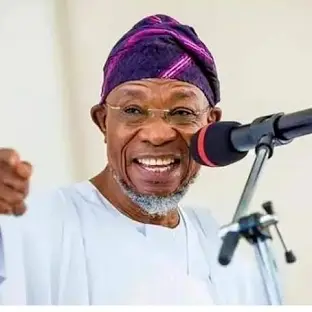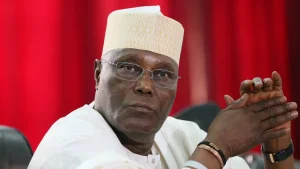In the ever-evolving theatre of Nigerian politics, it is rare to find a figure whose presence, long after leaving office, continues to shape discourse, influence outcomes, and unsettle opponents. Such is the story of Engr. Rauf Adesoji Aregbesola, popularly called Ogbeni, whose recent appointment as the National Secretary of the African Democratic Congress (ADC), Nigeria’s newly rising opposition platform, has again jolted political structures, particularly within his former party, the All Progressives Congress (APC).
For many, Aregbesola’s reemergence in a new partisan home should have been a moment for sober reflection on his enduring relevance, capacity, and value. Instead, what we have witnessed is an uncoordinated, if not laughable, barrage of attacks and verbal potshots from a few politically naive individuals, most of whom are long-standing rivals within the Osun APC, individuals who, despite their years of scheming, have failed to erase Ogbeni’s towering legacy in the state and beyond.
To understand the roots of this resentment, one must journey back to the formative years of Aregbesola’s political life. From his youthful days as an activist and organiser during the pro-democracy struggles of the 1990s, Ogbeni has always been driven by ideological clarity and revolutionary commitment to the people. He was never the kind of politician who sought office for its trappings; rather, he wielded power as a tool for societal transformation.
His association with Asiwaju Bola Ahmed Tinubu in Lagos became the defining point of his emergence as a political strategist of immense depth. As Commissioner for Works and Infrastructure in Lagos State from 1999 to 2007, Aregbesola helped entrench a new governance model that many states later tried to emulate. His strategic input was critical to the survival of opposition politics in Lagos and other parts of the Southwest, especially during the years when the Peoples Democratic Party (PDP) threatened to overrun the region.
But it was his electoral triumph in Osun State in 2010, following a titanic legal battle, that cemented his status as a political lion. For eight years, Aregbesola redefined governance in Osun, focusing on infrastructure, education, social protection, and youth development. His policies were bold, at times controversial, but undeniably impactful. Even after he left office in 2018, his presence has continued to loom large, which understandably unsettles some within the Osun APC establishment, who have since struggled to fill the vacuum he left behind.
Their discomfort with Aregbesola’s sustained popularity is the real reason for the recent attacks on his person. They fear what his mobilization strength could mean in the lead-up to 2027, particularly now that he is realigning through the ADC, a platform increasingly being seen as the nucleus of a credible third force in Nigerian politics.
His critics, mostly lacking in historical perspective and real grassroots engagement, have failed to acknowledge the fact that Aregbesola’s contributions to the APC’s evolution were not just significant, they were foundational. In Lagos, he helped build the structures that won elections even in the face of federal hostility. In Osun, he delivered two electoral cycles and helped mobilize the Southwest for the APC in the 2015 and 2019 general elections. Across Nigeria, his role as a political tactician was always in demand.
That the APC has now become a party in desperate need of ideological reawakening, internal cohesion, and mass trust, is in part due to the marginalization of men like Aregbesola, men who built, bled, and sacrificed for the party when it was unpopular to do so.
His new role in the ADC, far from being an act of political betrayal, is a reflection of the maturity of Nigeria’s democracy. It signals the possibility of alternative platforms gaining traction, especially when steered by individuals with credibility and experience. If anything, Aregbesola’s involvement in the ADC is bound to reshape alignments, particularly among disenchanted progressives within the APC who now seek a home more reflective of their ideals.
As Nigeria inches towards another defining electoral cycle in 2027, it is clear that Ogbeni remains a central factor in any serious political calculation. His reach, particularly among the youth and the working class, remains formidable. His political structure, developed over decades of activism, governance, and strategic engagement, is not one to be dismissed by opportunistic upstarts.
To dismiss Aregbesola is to misunderstand Nigerian politics. To try and undermine his legacy is to deny reality. For now, and for the foreseeable future, Ogbeni remains not just a man of history, but a man of destiny.
And that, perhaps, is what threatens his rivals the most.





















+ There are no comments
Add yours